Breathing is a little risky because you can’t see what you inhale. This makes air filters a must, but choosing between a high-end or a cheaper brand is hard, right? To help you out, we’ve researched air filters and have answers to share!
Famous-brand HVAC air filters might be the most advisable, especially for first-time buyers. But when comparing brands, the materials used in the filters are mostly the same.
But brand alone can’t be the basis for buying an air filter. These considerations will also help you:
- Learning the importance of the air filter rating
- How much you should spend on it
- The size of the air filter
Since it’s more important to focus on these considerations than the brand, we’ll elaborate on the things you should keep in mind when choosing an air filter. To know what they are, keep on reading.
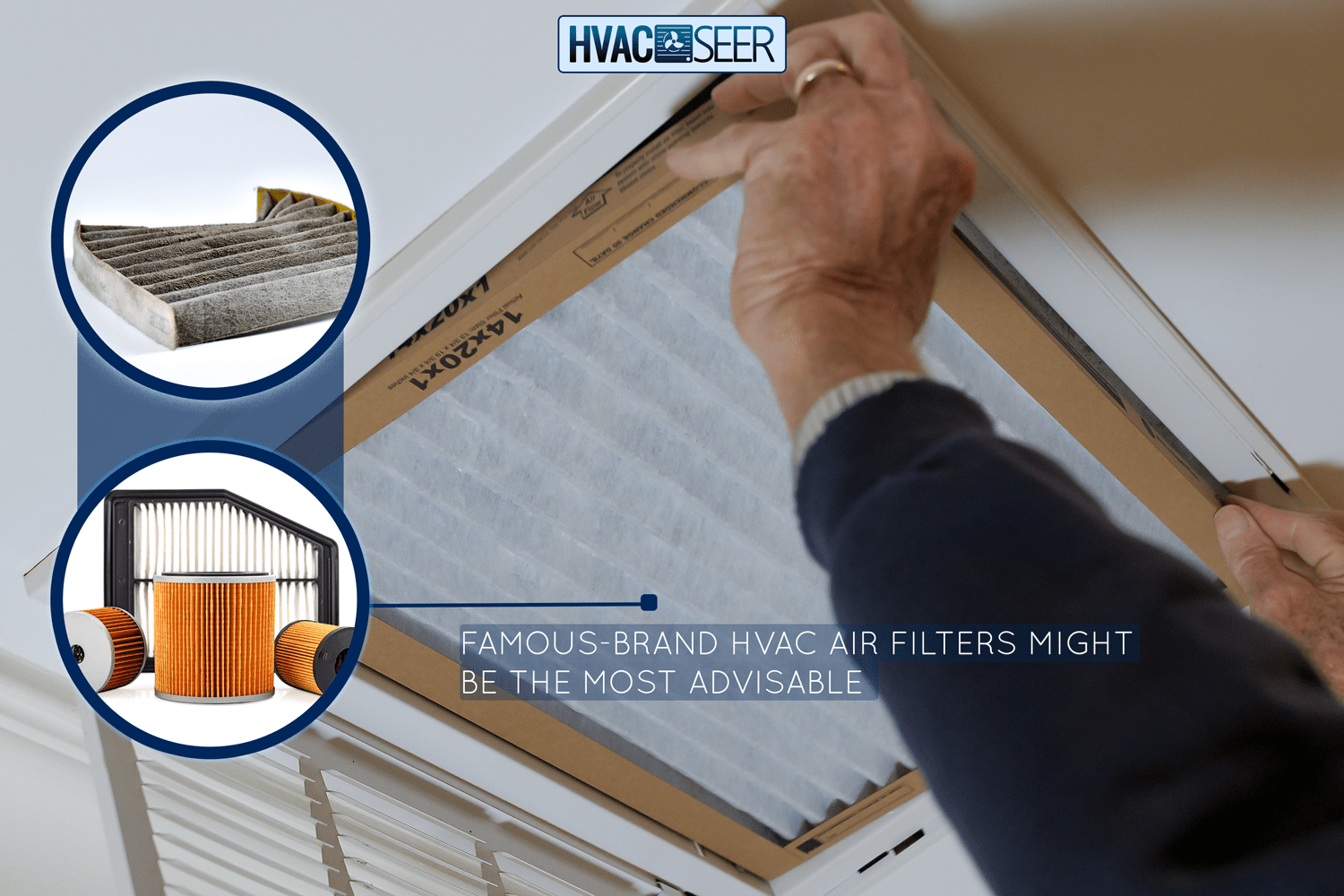
Why Is An Air Filter Important?
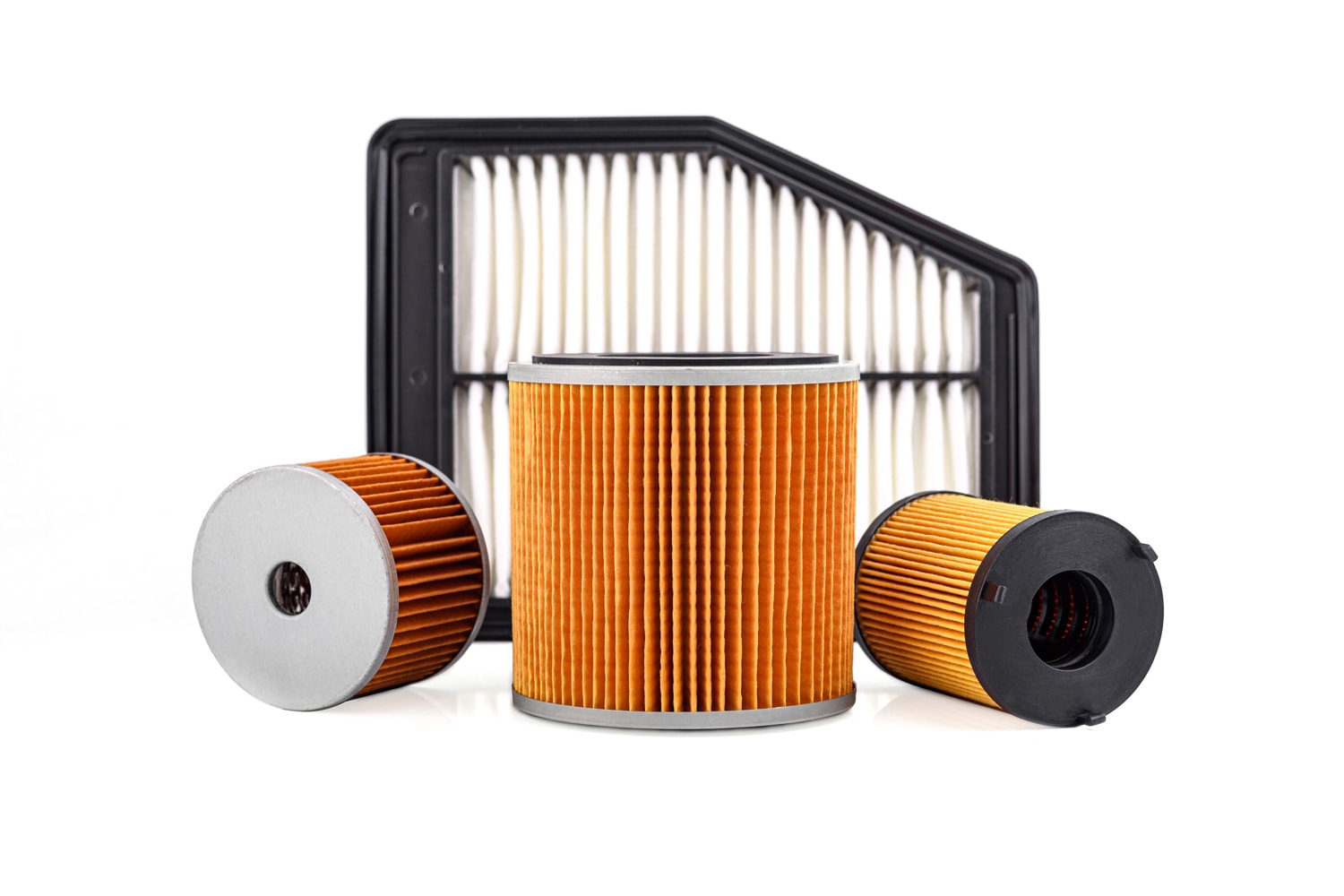
Whether indoor or outdoor, the air has microparticles. These can be dust, dirt, pollen, mold, and bacteria. If taken for granted, these particles can cause allergic reactions and inflammation, specifically in the respiratory system.
But with an air filter, the microparticles in the air are trapped. When those impurities are prevented from scattering around, the risk of lung infections and asthma attacks is reduced.
What Happens If A Filter Isn’t Changed?
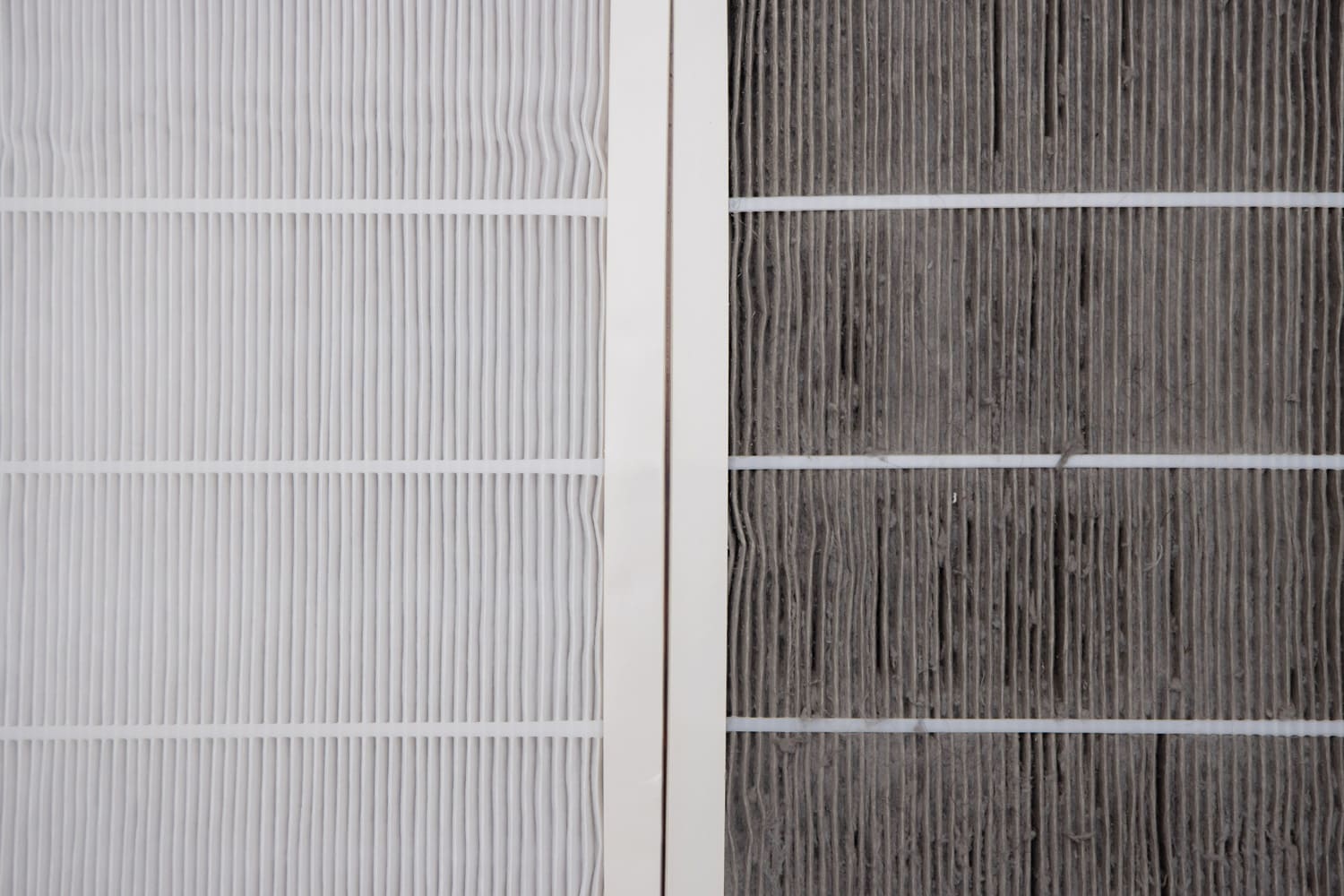
Not changing the filter can result in many consequences, as the filter contains contaminants.
Dust, which builds up in the filter over a period of time, can hinder the airflow. As result, the air coming out is minimal and damages the air system.
When dirt is in the air system, it tends to push the system to its limit, which can result in higher electricity bills. Aside from that, not maintaining the filters can affect the cooling of the system, resulting in poor performance.
Even high-end filters should be regularly changed. This is because moisture can grow on the filter, affecting the air duct, and ending up as mold. If the mold growth worsens, the people in your home can become ill.
Things To Consider When Choosing An Air Filter
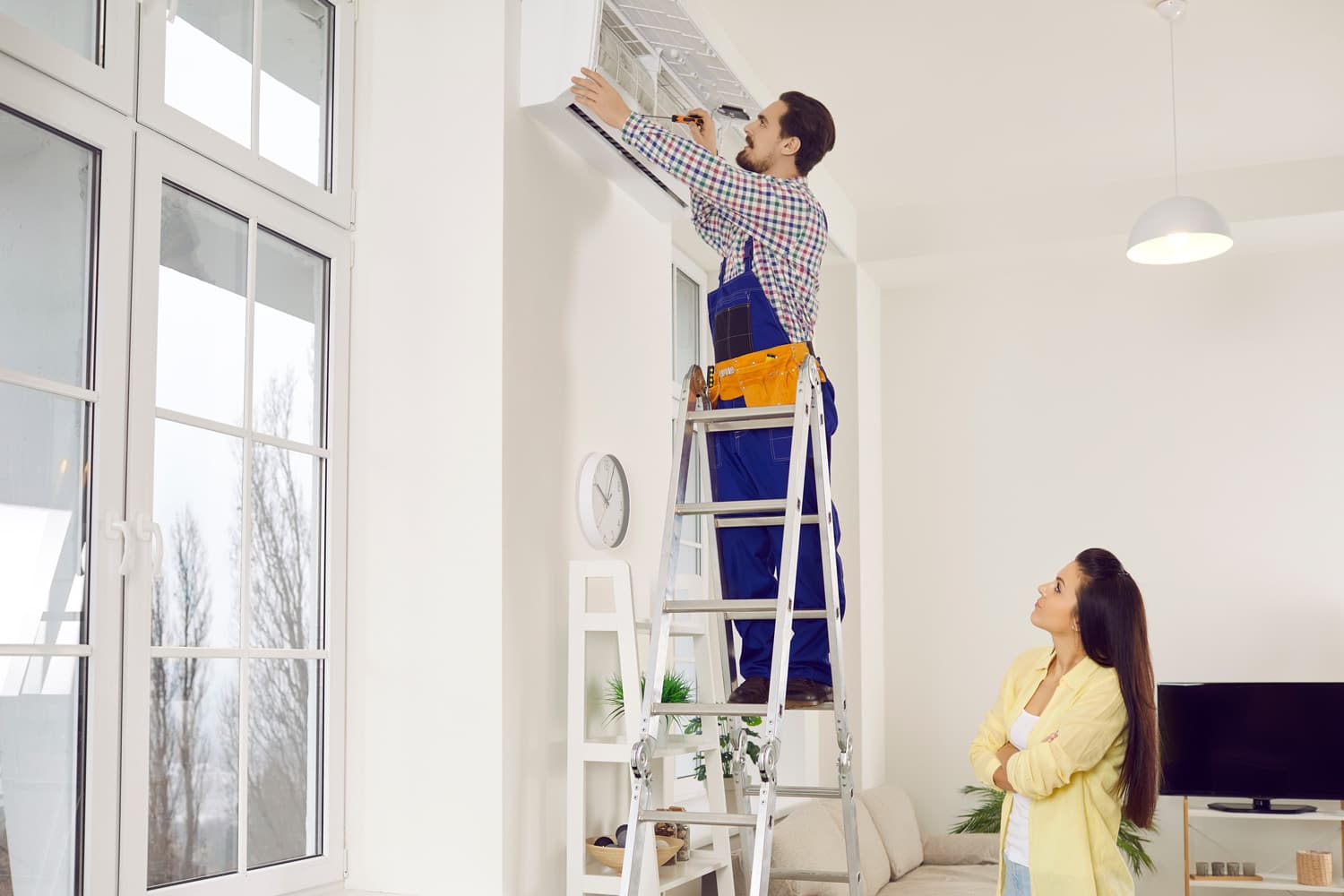
Before jumping into a brand, below are the things that you should know about air filters. Keep your notes going, because these things might be easy to understand, but some details are vital to remember, so you’ll get the best one.
Air Particles Indicator: MERV Rating
MERV rating is an indicator to know how many microparticles the filter gets. Mostly, the rating has 1 being the lowest and 20 being the highest.
But in some brands, you may find 1-16 ratings. Nevertheless, the lowest and highest numbers should be the basis.
As mentioned, a 1-20 rating is common, so to give you further details, we will classify the MERV ratings based on their capability for trapping particles.
This will give you an idea of what rating you are looking for based on your location size.
- MERV 1 to 4, the filter can go for 10.0 microparticles size like dust, pollen, and textile.
- MERV 5 to 8, the filter can go for 3.0 to 10.0 microparticles size like pollen, dust, textile, and mold.
- MERV 9 to 12, the filter can go for 1.0 to 3.0 microparticles size like pollen, dust, textile, mold, and bacteria.
- MERV 13 to 16, the filter can go for 0.3 to 1.0 microparticles size like pet dander, pollen, dust, textile, copier toner, bacteria, smoke, fume, and face powder.
- MERV 17 to 20, the filter can go for 0.30 microparticles size and even lower. It can also trap the previous pollutants and added contaminants like virus carriers, sea salt, odor, and microallergens.
Check the Suitable Filter Size
When changing a filter, the size must be based on your last one. Getting the size includes the length and width, as well as thickness. The standard thickness of a filter is about 1 to 2 inches, but there are also 3-5 inches.
If you don’t know your filter's size, use a tape measure to measure it. If indicated, check the last filter’s size, which is the nominal dimension. You might encounter nominal and actual dimensions.
Don’t be confused, because the nominal dimensions are the rounded-up measurement of the actual dimensions. When looking for a filter, the nominal dimensions are your basis for the size.
How Much Do Air Filters Cost?
Prices may vary depending on the brand, especially when it’s a well-known one. Yet, relating to its performance, the higher the MERV rating, the higher the price would be, while the lower the MERV rating, the cheaper it would be.
Specifically, the cheap, disposable fiberglass filters can only accommodate a few particles between MERV 2 to 3. For a more affordable price, you can opt for flat-panel or pleated filters.
There are permanent filters too, and they are undeniably more reliable, since they can go up to MERV 12 or even higher.
It might sound expensive to maintain a good filter but you can actually resort to practical choices. You can buy in bulk so you don't have to buy from time to time.
Most filters can be changed after two to three months of usage, but some can last up to 12 months. There are also washable filters, but make sure to dry them completely to avoid moisture build-up.
If you want to do regular maintenance of your air filter, it is advisable to change it monthly to prevent piling up dust and other microparticles.
OEM vs. Aftermarket
As mentioned, most filters have almost the same traits, but regarding the type, there are two choices: OEM and aftermarket. These filters might work the same but differ in the production source.
OEM (original equipment manufacturer) filters come from the same brand as the HVAC system. This means that they are made by the manufacturer to suit and perform together.
With OEM filters, the filter and the air system will fit directly since their specs are equal.
Aftermarket types of filters are made for the air system models that have already been produced. This filter is less expected to meet the exact size of an air system, so you may have to search to find the best fit for yours.
Frequently Asked Questions
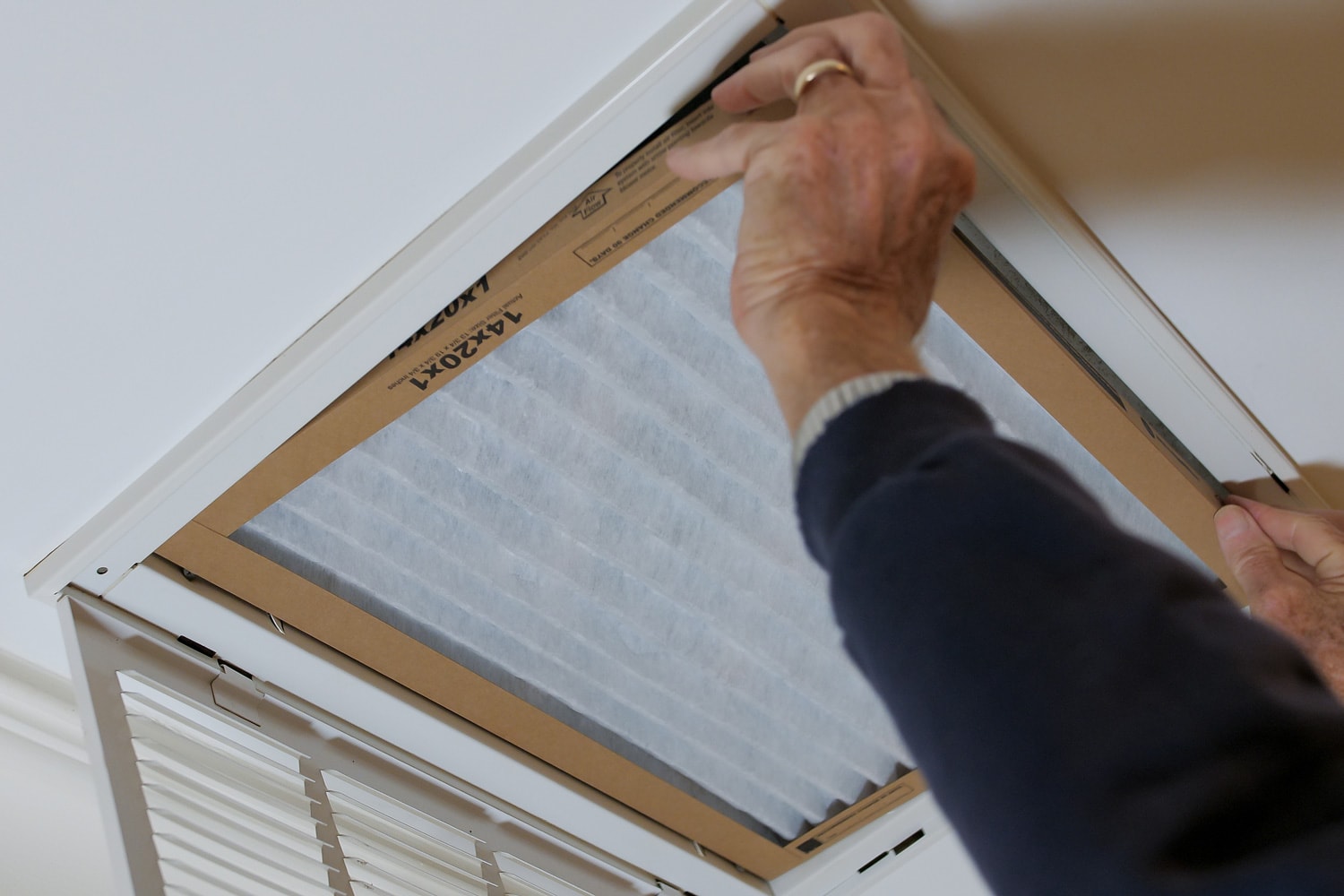
Is MERV 8 or 11 better?
Comparing the two rates, there is no significant difference in capturing between the sizes of microparticles. But in capturing smaller sizes, MERV 8 can only get 20%, while MERV 11 can capture 65 to 79% of microparticles.
Are aftermarket air filters worth it?
These aftermarket filters were found less efficient than OEM filters, since they cheaper.
The reusable filters may also provide less help because they tend to attract more dirt to the unit. In some instances, this could create abrasions in the system.
Is no air filter better than a dirty one?
Having no filter can easily and immediately attract more dirt which leads to worse problems.
With no filter, the AC will provide poor air quality, damage the system, and put your health at risk, since the dirt and bacteria are freely scattering in the air.
With that said, no filter is worse than having a dirty one. To prevent future problems, contact professional maintenance, like an HVAC technician, and start installing an air filter in your system.
Why is my air filter black?
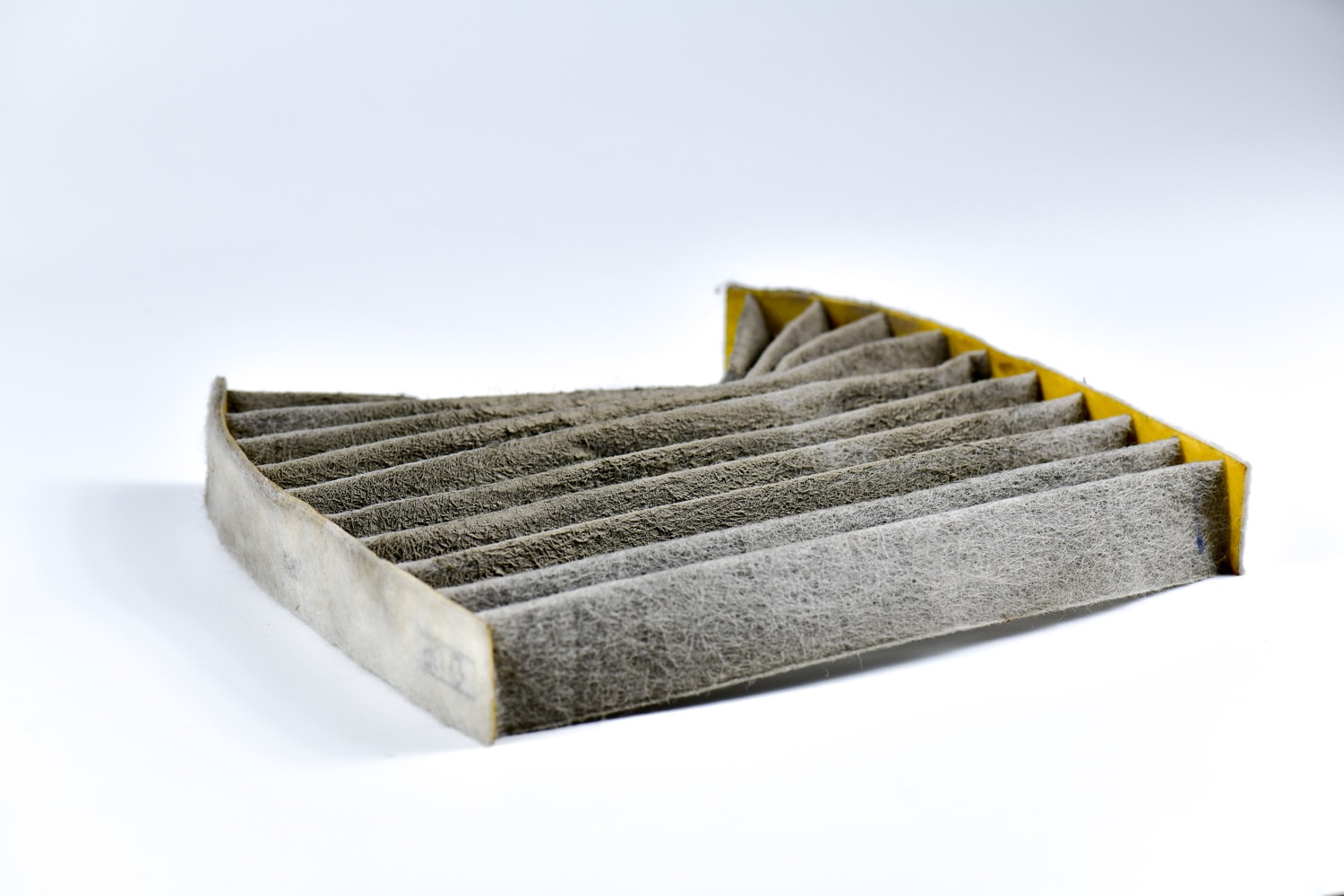
Since the air filter catches dirt in the air, it tends to get dirty and worn. But it shouldn’t be black, because this color indicates a problem with the filter. Here are the three main reasons for a black air filter:
- Black soot: the result of candles and gas. Due to the buildup of the candle or gas smoke, the soot becomes black, and it’s noticeable when you replace your air filter with a clean one.
- Mold: created from the excessive moisture from the AC. When it turns black and starts to scatter, you should change the filter immediately, because mold leads to respiratory issues like asthma.
- Clogged air filter: too much dirt can clog your filter. When the filter is clogged, it might not trap contaminants in the air. Also, the airflow is reduced.
Final Thoughts
Whether it’s an expensive or cheap brand, you now know that you should always take considerations so you will know what filter you are looking for. You won’t just rely on the brand name itself. You should consider size, MERV rating, type, and cost.
Now that we’ve discussed the important considerations, we hope you are not confused anymore about choosing an air filter. For further reading, check out the articles below.
